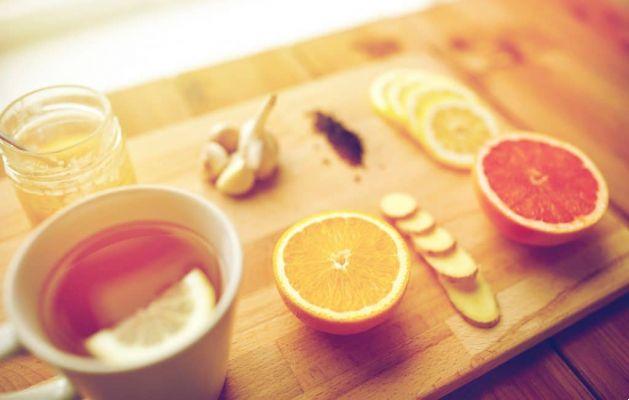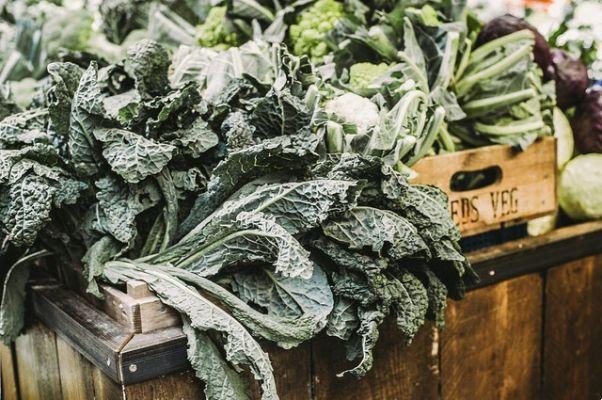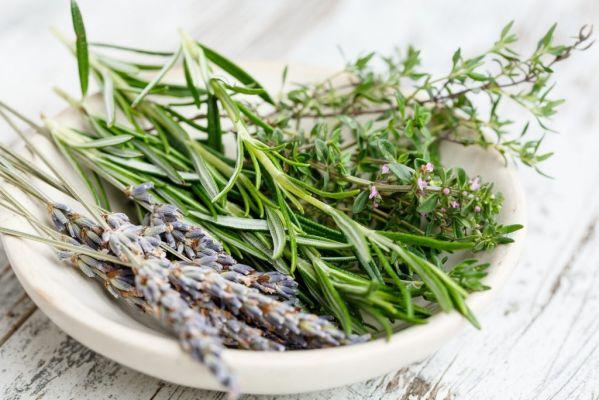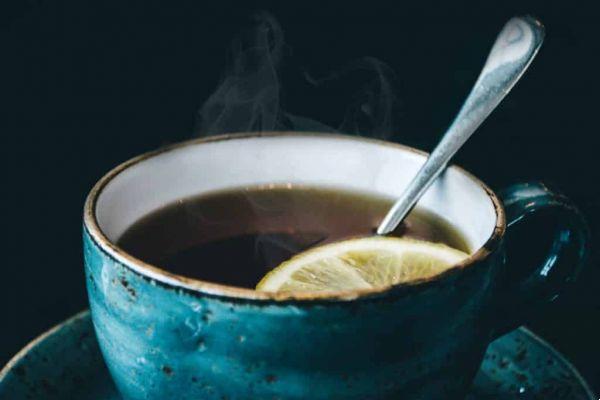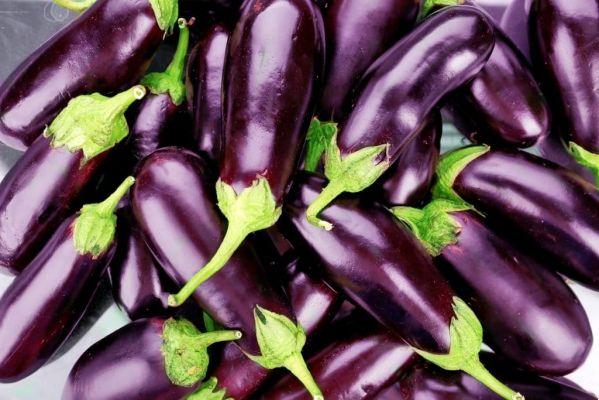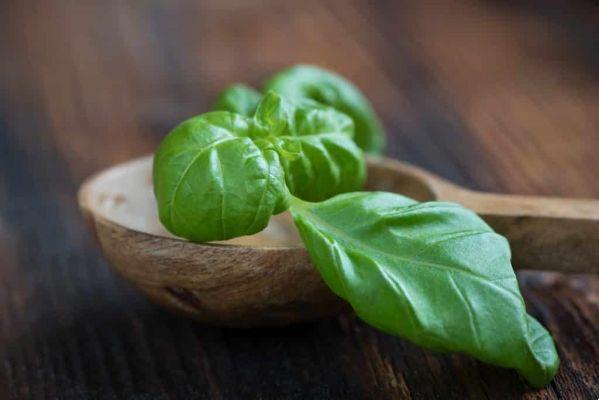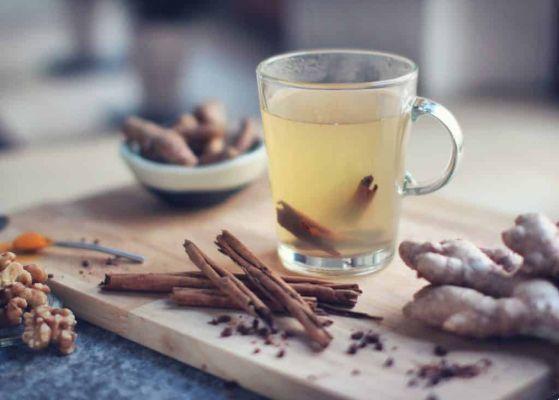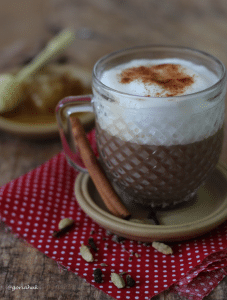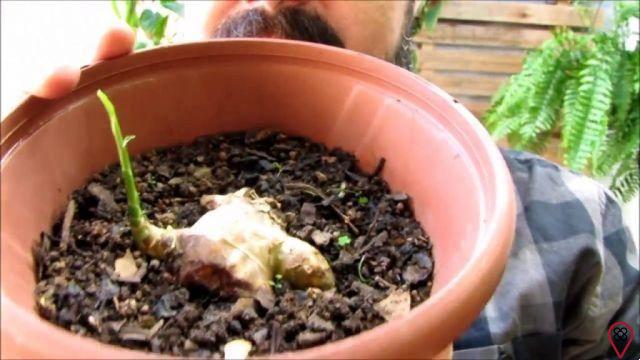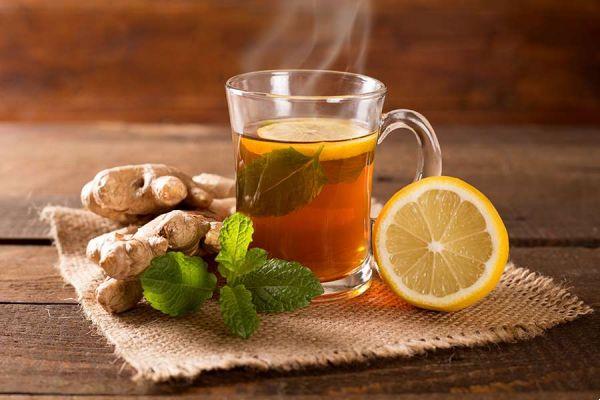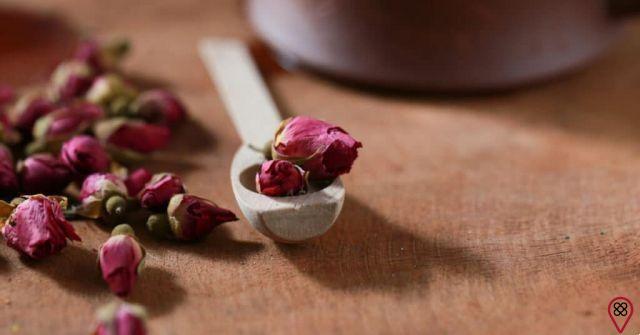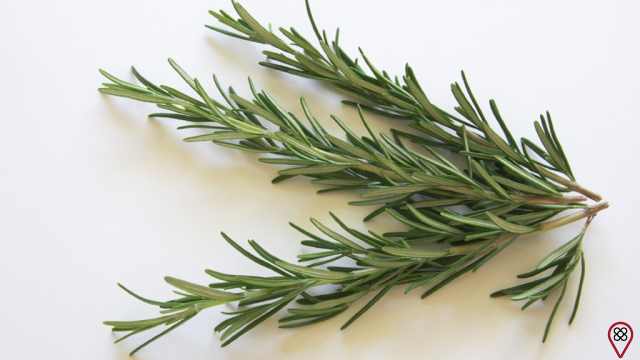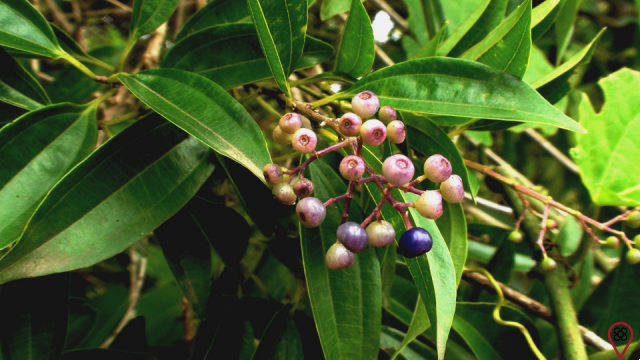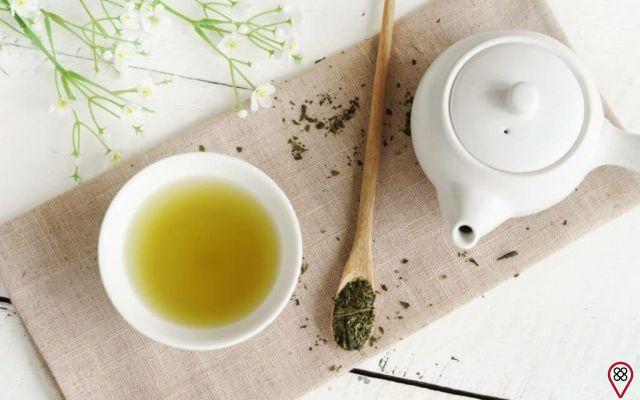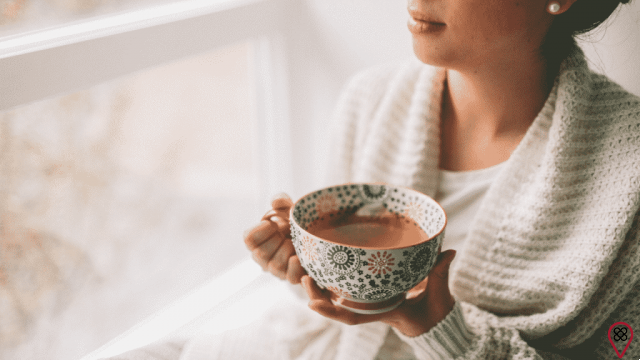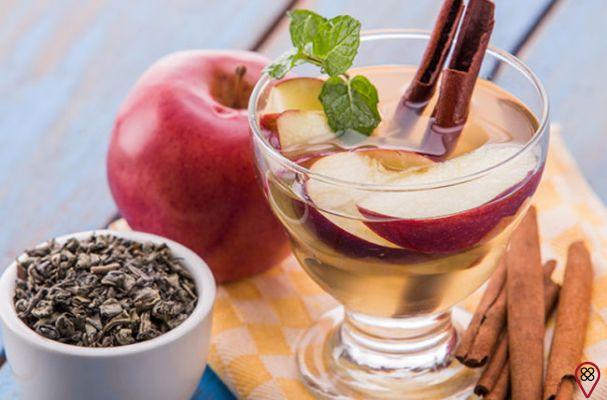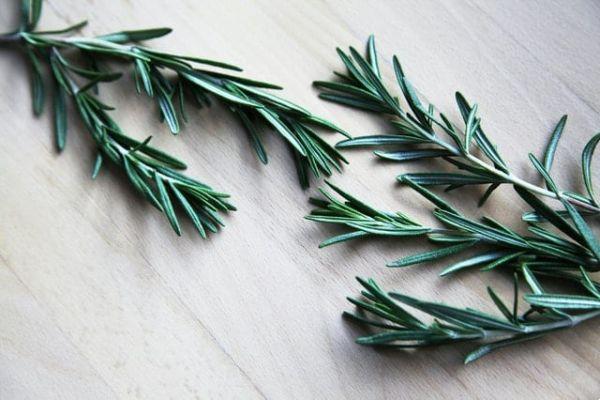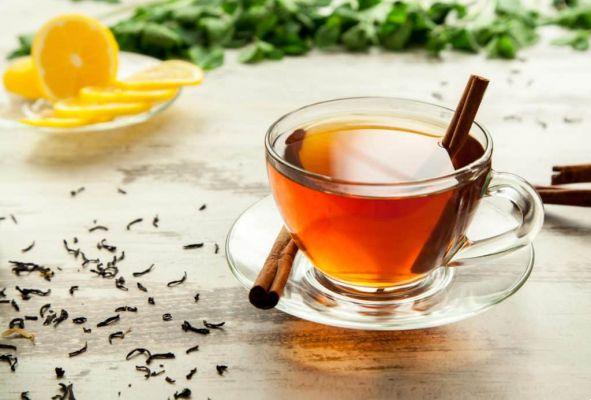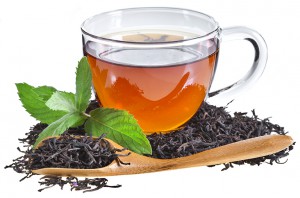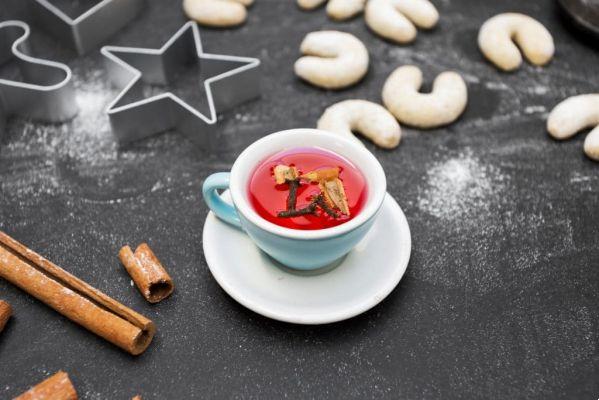Tea and health is a more than perfect combination. There's nothing more comforting than having a cup of tea in the late afternoon, especially in times with milder temperatures. But did you know that, in addition to the pleasure of preparing this ancient drink, its ingredients bring numerous benefits to our health?
Here, we are going to list the properties of some teas for you to start drinking now, and you don't even have to wait for the temperature to drop, because you can even drink it cold.

But first, a little history:
Tea is one of the most consumed beverages in the world. Traditional in British afternoons and Japanese ceremonies, its history dates back to China, more than five thousand years ago. The most famous of legends tells that tea was discovered accidentally, during the rule of Emperor Sheng Nong, who, in an attempt to minimize the occurrence of epidemic outbreaks in the kingdom, ordered people to boil water before drinking.
One day, he was resting in the shade of a tree, where he left his cup of water to cool for a few moments. A few leaves fell into the container, turning the water brownish. The emperor then tried this mixture and found it to be pleasant to the taste. Thus, the custom of cultivating this plant spread among that population.
This story refers to a specific type of plant, known as Camellia sinensis – or Indian tea, or simply tea. By the way, although here in Spain we have the custom of calling every infusion “tea”, this name originally refers only to this plant, whose varieties are divided into four distinct groups: black tea, oolong tea, green tea and white tea (in order of strongest to weakest flavor, respectively).
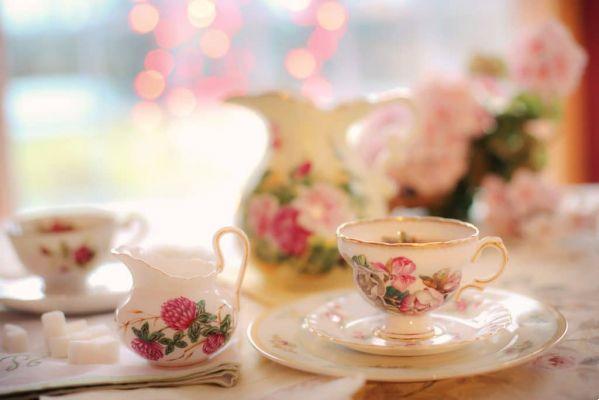
The Tea Ceremony
According to historical records, it was around the 8th century that tea was introduced to Japan. Monks from China took tea seeds with them, starting the cultivation of the plant and the habit that later became a tradition. This practice intensified around the 12th century, when Zen Buddhism was adopted in Japan, also coinciding with the arrival of matcha (powdered green tea).
The story goes that, in order to stay awake during nightly meditations, the monks would ingest matcha (which suggests the medicinal properties of the tea). A custom that ended up becoming a philosophy of life, through the Chado (“Caminho do Chá”), implemented in the Chanoyu ritual – the Tea Ceremony, celebrated to this day.
Worldwide
Tea gradually arrived on the European continent, initially through Central Asia and Russia. But those responsible for spreading the tea culture more widely were the Portuguese. If tea is now part of British culture, it's thanks to them. But it was from the 19th century that this habit spread more quickly among the English. From then on, tea arrived in the USA, Australia and Canada, until it became popular in the rest of the planet.
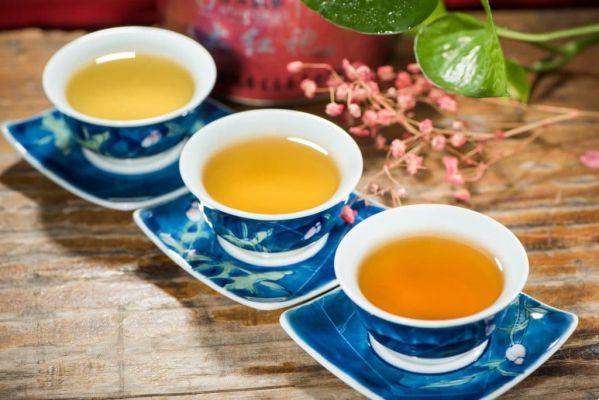
the five o'clock tea
This tradition has existed in England since the 17th century, but it was in the 19th century that it became completely popular. The story goes that the Duchess of Bedford was always very hungry between lunch and dinner. And to assuage that feeling, she made a small snack, consisting of a cup of tea with milk and sugar, accompanied by a snack.
This ritual began to be reproduced by aristocrats and bourgeois in their homes. The occasion ended up becoming a social event. The practice spread, which resulted in the creation of several tea rooms, turning five o'clock tea into a tradition that is still followed today, and not necessarily just at 17 pm, as at any time.
medicinal properties
In addition to being a tradition in China, Japan and England, tea here is seen as a light drink (a great alternative to coffee) and with medicinal properties.
In ancient times, medicinal plants were used as medicine. Even before the advent of writing, our ancestors already used herbs for food and medicinal purposes. They knew which were fit for consumption, which were toxic or hallucinogenic.
Here in España, we usually call infusions with other plants and flowers tea. And most of them have important effects on our health. It is worth highlighting some options to try, either for the mixture of flavors or for the benefit to our body.
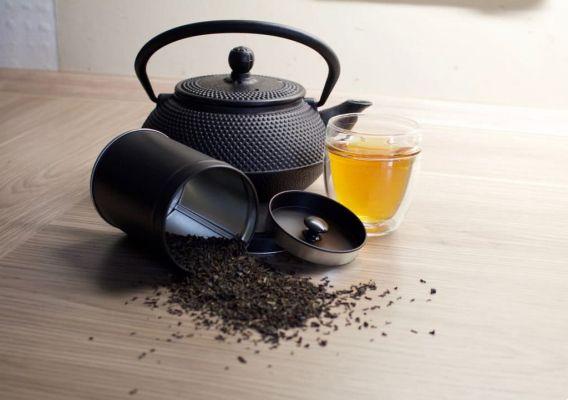
Black tea
One of the varieties of true tea (Camellia sinensis), black tea has anti-inflammatory and astringent properties. Rich in polyphenols, it is a powerful antioxidant, protector of the brain and can even help with weight loss, in addition to providing energy to our body, thanks to caffeine. Prevents cardiovascular diseases and increases immunity.
White tea
Another variety of Camellia sinensis, this tea is suitable for those who want to lose weight. All this thanks to caffeine, which speeds up metabolism. It is also an adjuvant in the fight against degenerative diseases, due to its antioxidants. And if you are feeling emotional, irritable or in a low mood, this tea can improve this condition, as it contains substances that help increase dopamine and serotonin levels. Great for relieving PMS symptoms.
lemon balm tea
Lemon balm is an excellent herb for those who suffer from anxiety, insomnia and irritability. It has calming, hypotensive and sedative properties. It's great for improving digestion, relieving cramps, and calming nerves and palpitations.
Fennel tea
Another plant that helps to calm down. In addition, it eliminates bad breath, relieves intestinal cramps and heartburn. It is also a great flavoring agent, widely used in cooking. Fennel can be used in conjunction with lemon balm and chamomile, forming a potent tea to help ease symptoms of anxiety, depression and panic. It is also very suitable for the relief of colic in babies.
Chamomile tea
Rounding out the triad of the most popular calming teas, chamomile tea is an excellent sleep aid. Having a cup of this tea before going to bed can help you have a restful night. In addition, it is great for headaches and PMS symptoms, and is also widely used as a cold compress on dark circles to minimize puffiness around the eyes.
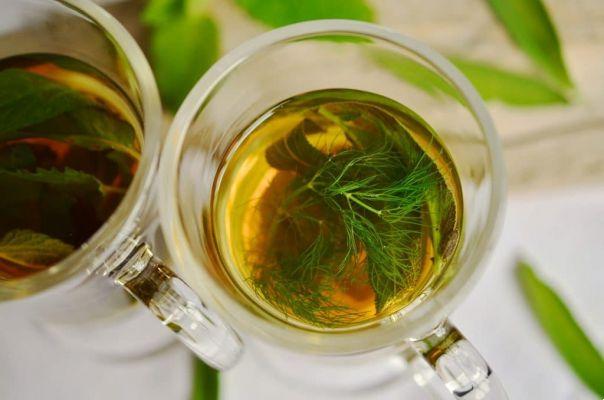
boldo tea
Boldo-do-Chile is a plant with digestive properties, widely used to treat gastrointestinal discomforts. It is considered an excellent hepatoprotector. It helps against gastritis, colic and heartburn, as well as being a great ally to cure the popular hangover. But it should be taken with caution, as it can irritate the stomach, loosen the intestines and trigger diarrhea.
Carqueja tea
There are those who can't stand the bitter taste of carqueja, but it is a holy medicine. The plant has diuretic, antianemic, antibiotic and anti-inflammatory properties. It helps in the proper functioning of the liver and in the fight against worms. It is also said that it is good for those who suffer from diabetes.
Mint tea
Present in candies, lozenges, chewing gum and drinks (such as mojito), mint has a pleasant and refreshing taste and is very popular in the form of tea. Among its many benefits, we can highlight: improvement in digestion; relief of cold and flu symptoms, pain and skin irritations; and improved oral health and memory. Mint is rich in menthol, a compound whose properties have been linked to the prevention of some types of cancer, especially prostate cancer.
porangaba tea
Porangaba is a very popular herb in Spain. Its most sought after properties are the ability to help with weight loss. It is said to act as an appetite suppressant, as well as having a diuretic, laxative and circulation-stimulating effect and eliminating excess fat and swelling.
Cinnamon tea
Cinnamon is a very popular spice in cooking. With a strong flavor, it is used to season from porridges to mixtures for savory seasonings. It is one of the ingredients that make up curry, a tasty mix of spices, of Indian origin. But it's not just as a spice that cinnamon is appreciated here.
She is one of the best known thermogenics. Cinnamon is credited with the power to accelerate circulation and act as a natural anticoagulant. It is excellent for metabolism and the digestive system, as well as being a powerful antioxidant. For tea, the ideal is the use of cinnamon stick.
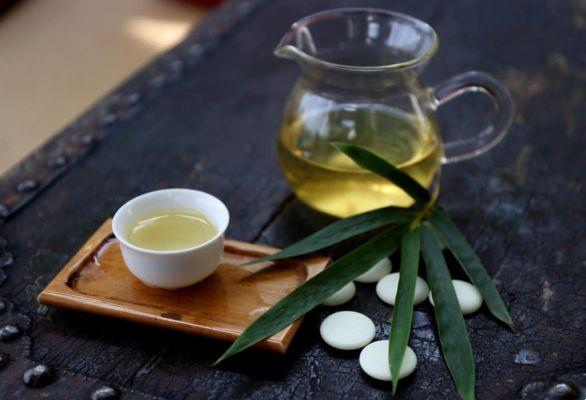
Rosemary tea
Rosemary is another plant widely used to season savory or sweet dishes. It is an aromatic herb from the Mediterranean, and one of the most complete when it comes to benefits for the body. From rosemary, we can extract essential oils, with antiseptic, analgesic, antidepressant and stimulant properties. Great for relieving mental and physical fatigue.
In the form of tea, it alleviates stomach discomforts, such as reflux and heartburn, in addition to helping with digestion and having diuretic effects. It is of great help to improve memory and concentration, as well as being a good adjunct in the treatment of depression and anxiety. Rosemary tea is also a great hair rinse, either to help fight irritation (thanks to its antifungal effects), or to add shine, or to stimulate blood circulation in the region.
apple tea
The English proverb says, “An apple a day keeps the doctor away” While there is no evidence that this is true, the apple is a fruit full of benefits. Rich in vitamins B, C and E, fiber and antioxidants (especially the peel, used in teas), the apple is a powerful ally of our health.
In tea form, it has calming, sleeping and diuretic effects. In addition, it has antibacterial, antiviral and anti-inflammatory properties.
Ginseng tea
Ginseng is a plant known for its revitalizing properties. Activates blood circulation and helps fight stress. In addition, it is highly sought after to stimulate sexual functions.
Research carried out by the Faculty of Veterinary Medicine and Animal Science at USP revealed that extracts from ginseng-español had great activity in the fight against cancer cells, but more studies are still needed in this regard.
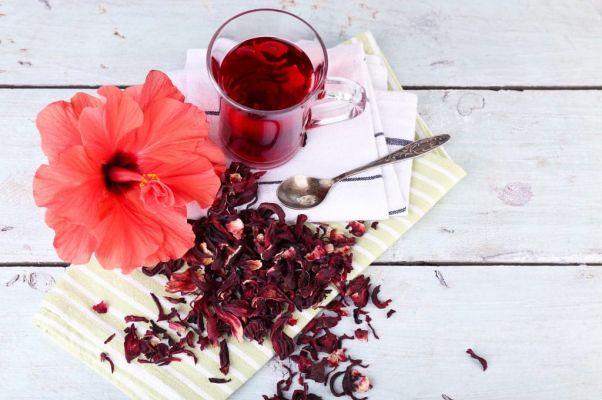
Hibiscus tea
Hibiscus is a flower that has many beneficial properties for the body. The infusion of its dried petals forms a tea with a reddish color and a very pleasant aroma. There are those who don't like the taste, but in general it is well accepted and considered mild. The plant has been used medicinally for many centuries and nowadays it is mainly sought after by those who want to lose weight.
But it offers even more benefits: it has antioxidant properties, is rich in calcium and magnesium (being an important aid in the health of bones and muscles). Other properties associated with hibiscus are: lowering blood pressure, controlling cholesterol, improving liver health and helping to combat fluid retention. The following benefits are still being studied: prevention of premature aging and help in preventing cancer.
horsetail tea
Horsetail is a plant known for its diuretic effects. It also has anti-inflammatory, antioxidant, anti-bleeding and antimicrobial properties. In addition, its medicinal use is indicated for the treatment of rheumatic diseases, kidney stones and other urinary tract infections. Helps in the treatment of cellulite and acne. Its tea also helps in the treatment of hair loss, or to give shine to the hair.
But watch out!
It is important, as always, to point out that teas do not replace medications prescribed by your doctor, nor do they overlap with psychotherapeutic treatments (in case of anxiety, depression and panic syndrome).
You may also like
- Infallible teas to cure respiratory diseases
- Discover the properties of lemongrass tea
- How to cure colds and flu with teas
Also, just because it's natural doesn't mean it won't pose any risks to your health. Plants, even those that can be consumed, are capable of causing reactions such as allergies and other problems. Therefore, you should exercise caution before consuming and investigate whether you are likely to develop any type of allergy.
In any case, teas continue to be great allies of our health and well-being, in addition to providing true moments of pleasure and serenity. So, enjoy the moment and take care of yourself!



